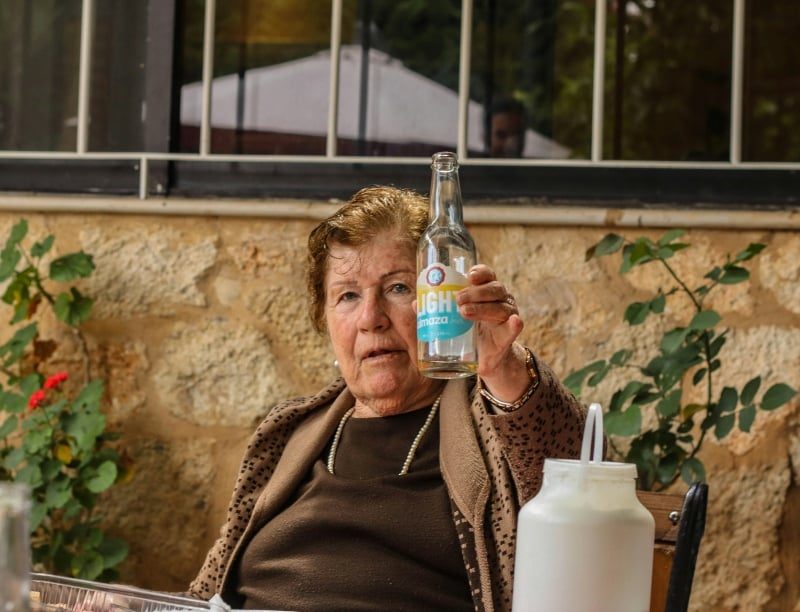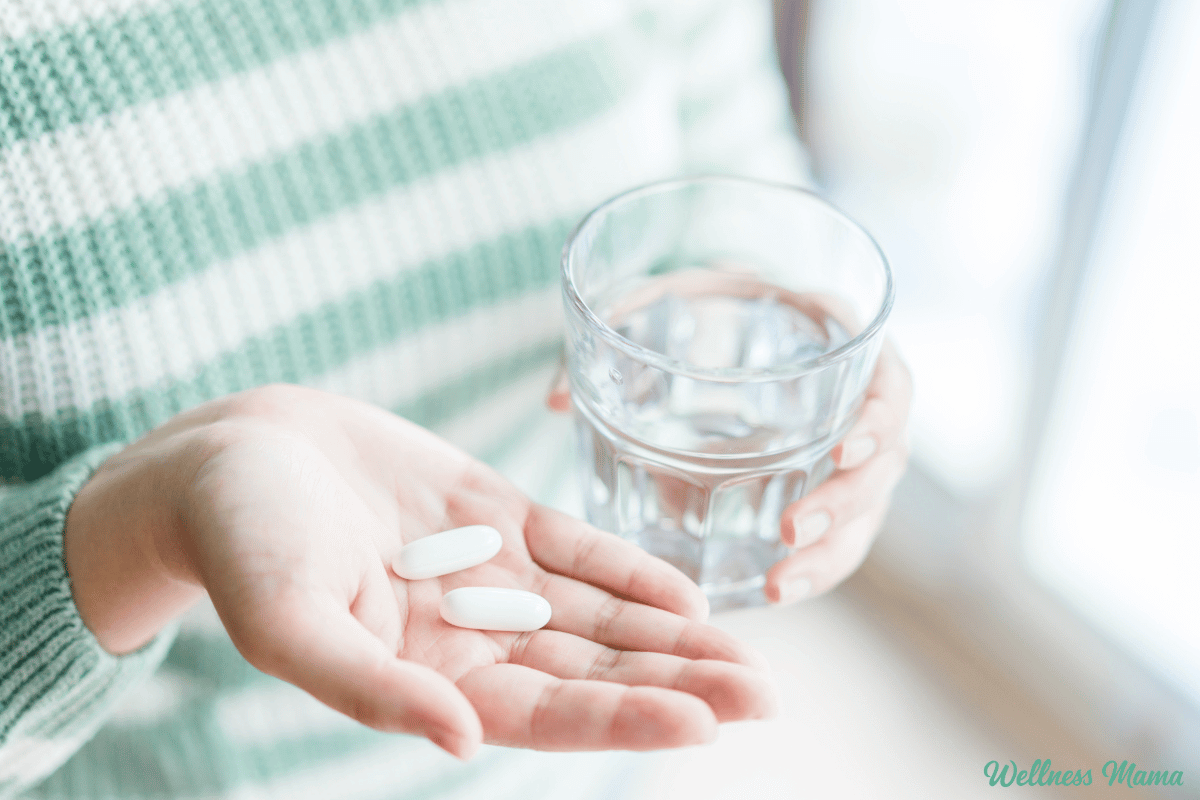I’m a second-wave feminist, a therapist, and someone who had a rocky peri-menopause and menopause, followed by a relatively peaceful post-menopause. Maybe you can relate.
We second-wave feminists fought for most of the civil and human rights women have in the U.S. and Europe today. In doing so, part of the narrative we embraced is that hormone fluctuations do not affect women. At all.
This narrative was in response to the decades of patriarchal arguments and jokes about women, their fluctuating hormones, and having women be in charge while under the influence of their hormones. You’ve probably heard them. Here’s one from as recently as 2008.
Think back to the 2008 elections. (You may remember this quote from Miss Representation the documentary.)When Fox News anchor Bill O’Reilly asked guest Marc Rudov what the downside to a woman (Hillary Clinton) in the Oval Office would be, Rudov replied, “You mean besides the PMS and the mood swings?”Never mind that Hillary, like me, was well past PMS by 2008. Even if she hadn’t been, Gloria Steinem has a great quote for that:
“If women are supposed to be less rational and more emotional at the beginning of our menstrual cycle when the female hormone is at its lowest level, then why isn’t it logical to say that, in those few days, women behave the most like the way men behave all month long?” — Gloria SteinemPost-menopausal women must then be either the most rational and stable of all women, or they behave like men behave all the time. Which negates the superfluous and spurious “argument” against the Hillary Clinton presidency. To say nothing of the unstable totalitarian male wannabe we did elect.
Male comedians and political pundits aren’t the only ones that joke about women’s hormones. I’ve made a joke about it as well.
When I read that peri-menopausal and menopausal women should stay away from caffeine and alcohol I quipped,
“Just try prying wine and coffee out of our cold, sweaty hands and live to tell about it.”Clearly, I quipped this after experiencing peri-menopause and menopause myself.
Until I was peri-menopausal myself, I resented the implication that hormonal fluctuations made women have emotional fluctuations. I held the hard line against seeing women differently from men because of their hormones.
If hormone fluctuations affect women by making them irritable, combative, or impulsive, what is the excuse for men when they get into fights — verbal or physical — or make decisions thinking with their little heads and not their big ones?
“If women are supposed to be less rational and more emotional at the beginning of our menstrual cycle when the female hormone is at its lowest level, then why isn’t it logical to say that, in those few days, women behave the most like the way men behave all month long?” — Gloria Steinem
However, as I entered peri-menopause, I had emotional experiences I couldn’t define or understand
PMS had caused physical suffering, not mental or emotional issues. If I cried during menstruation, it was because the cramps were debilitating.
I began having panic attacks while driving over bridges and overpasses at age 50. They started while driving my son to see his grandmother in Florida, on the Crescent City Connection bridge over the Mississippi River in New Orleans. It’s the largest cantilevered bridge in the world.
I told my son, as calmly as I could, to be ready to take the wheel. He was 9 years old.
I cranked up the air-conditioning and rolled down my window while trying to find and get to an off-ramp. I was sweating, having trouble breathing, and felt as if I was on the verge of passing out. Not a good thing when maneuvering through four lanes of traffic, over water, without an off-ramp or pull-over in sight.
It was 6 years post-menopause before the panic attacks stopped when coming up to overpasses and bridges. My son was in his junior year of college by then.
Prior to the panic attacks, when I first started peri-menopause in my late 40s, my anxiety levels would increase to the point where once I asked a friend to come take my son with her for the afternoon. I didn’t want him to see me shaking and angry.
During that time, other women — both clients and friends — told me stories of their passages through peri-menopause. One pushed another woman at work, which resulted in her being fired and threatened with legal action. Clients, while in therapy, would strip off layers of clothing as hot flashes hit, only to put them all back on minutes later. They reported increased or sudden onset anxiety and worry.
With all this anecdotal and personal evidence, I had to admit that the massive hormonal fluctuations of peri-menopause were precursors to emotional feelings, actions, and reactions.
But why did it take me — and so many of us — so long to understand the results of decreasing and fluctuating hormones? Was it simply a result of our feminism?
Peri-menopause and menopause haven’t been studied well, and what is known isn’t widely disseminated
We didn’t see or understand how hormone fluctuations were affecting us because doctors are still not well-informed on what happens during peri-menopause and menopause. Nor how to treat the symptoms. There simply are not enough ongoing studies. Longitudinal studies with current results haven’t been reported frequently enough in the media to gain zeitgeist with the public, and post-medical school doctors may not have seen these studies.
One 18-year-long longitudinal study shows that HRT— when started during peri-menopause — protects women from most life-shortening illnesses.
In fact, a pooled statistical analysis of thirty clinical trials found that women who began hormone therapy before age 60 had a 39% lower risk of death than women who didn’t take hormones.Did you know this? I didn’t until I wrote this article. The headline “HRT Protects Women From Cancer and Cardiovascular Disease” doesn’t have the scare factor that would make media grab it and run.
Worse, while an old study stating hormone replacement increased odds of breast cancer has been shown to be flawed and the results have never been duplicated, the general public and many medical practitioners still refer to this discredited study. The study itself got lots of print, but not the follow-ups discrediting it. Forbes reports:
Given the health and career impact of menopause symptoms, it’s a problem that many clinicians are not well-informed on the current thinking regarding hormone therapy. Bluming explains that part of the problem stems from the fact that menopause education is currently offered to less than 25% of residents studying obstetrics/gynecology. This may also explain why some practitioners still refuse to prescribe hormones. Given that over 50 million women in the United States are over the average age of menopause (51 years), one would think menopause care would be a higher priority.One would think, but one would be wrong
I have had doctors question my taking progesterone without estrogen, even though it’s the other way around — estrogen needs to be balanced with progesterone in order to prevent uterine cancer. Estrogen is contraindicated for me because I have fibroid tumors that haven’t disappeared after menopause, as is usually the case when estrogen levels drop.
When I experienced vaginal atrophy after menopause, which affected my having intercourse, I asked to be put back on the progesterone I began taking during peri-menopause. Progesterone replacement had helped reduce my anxiety dramatically. Starting it again helped me regain lubrication just as dramatically.
Currently, I’m considering adding a small amount of testosterone, primarily because I am weight-lifting, and testosterone increases muscle mass. Increased and stronger muscle supports aging joints, and weight-lifting can prevent osteoporosis. Although I may not need it, since progesterone, which I still take, is a precursor and building block for testosterone in both men and women.
“Males produce progesterone in their adrenal glands and testes. Progesterone is often better known as a female hormone but is crucial in producing testosterone. Men with low progesterone levels have a higher risk of developing osteoporosis, arthritis, and prostate cancer.”Could low progesterone levels in men account for some men’s tendencies toward violence and confrontation?
Here’s a list of health and behavioral issues progesterone is known for affecting positively. The list is from an article on men’s progesterone levels.
- Sleep improvement from issues such as sleep apnea
- The process by which our bodies turn fat into energy
- Thyroid hormone production
- Production of bone mass
- Brain activity
- Blocking of gonadotropin secretion in the central nervous system
Other effects
Progesterone also has other important effects on:
- The immune system
- Adipose tissue (specialized connective tissue consisting of lipid-rich cells called adipocytes)
- Kidney function
- Cardiovascular system
- Behavior
- Respiratory system
- Weight gain and appetite in both men and women
It seems likely progesterone replacement can help women and men.
How do we each decide what’s best for us regarding HRT?
For all those reasons, and the vaginal lubrication, I’ll be on progesterone until I die. But what about estrogen and testosterone? How do I decide?How do you?
My current nurse practitioner is open-minded and does her own research. She’s been a life-saver, literally. She has done well managing my HRT and other issues. However, she prefers that I have a gynecologist prescribe my hormones.
Since I haven’t found a doctor yet who is fully literate in HRT, I’m looking for one. If you’d like to see how HRT might aid you through peri-menopause, menopause, and beyond, you might want to as well. Writer Kim Elsesser in Forbes magazine, recommends accessing the North American Menopause Society (NAMS) web page to find a NAMS Certified Menopause Practitioner in our area.
I’ll let you know how that goes for me.
—
This post was previously published on Middle-Pause.
***
You Might Also Like These From The Good Men Project
 Compliments Men Want to Hear More Often
Compliments Men Want to Hear More Often  Relationships Aren’t Easy, But They’re Worth It
Relationships Aren’t Easy, But They’re Worth It  The One Thing Men Want More Than Sex
The One Thing Men Want More Than Sex  ..A Man’s Kiss Tells You Everything
..A Man’s Kiss Tells You Everything Join The Good Men Project as a Premium Member today.
All Premium Members get to view The Good Men Project with NO ADS.
A $50 annual membership gives you an all access pass. You can be a part of every call, group, class and community.
A $25 annual membership gives you access to one class, one Social Interest group and our online communities.
A $12 annual membership gives you access to our Friday calls with the publisher, our online community.
Register New Account
Log in if you wish to renew an existing subscription.
Username
First Name
Last Name
Password
Password Again
Choose your subscription level
- Yearly - $50.00 - 1 Year
- Monthly - $6.99 - 1 Month
Credit / Debit Card PayPal Choose Your Payment Method
Auto Renew
Subscribe to The Good Men Project Daily Newsletter By completing this registration form, you are also agreeing to our Terms of Service which can be found here.Need more info? A complete list of benefits is here.
—
Photo credit: iStock
The post It Was a Hard Blow for Me as a Therapist and Feminist When I Realized Hormones Do Affect Us appeared first on The Good Men Project.
Original Article










